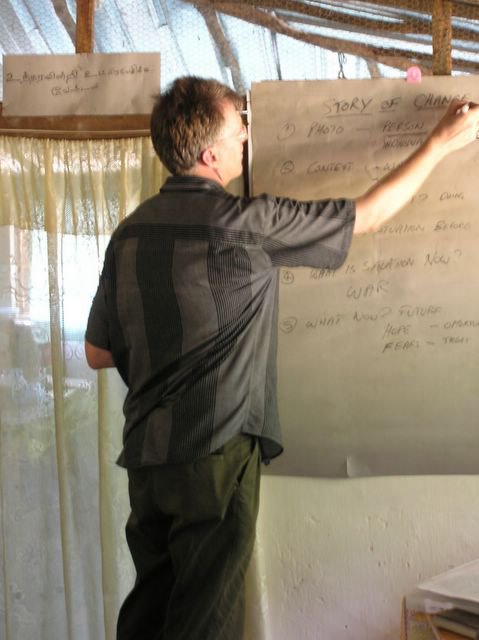
My visit to Puttalam on 3rd February 2006. Apparently 'Upu' means salt and ‘talam’ means base or place in Tamil, hence the name of this small but ancient settlement on the western coast of Sri Lanka.
In the company of Mr Nihmatulla, a programme manager with Community Trust Fund and working particularly with IDPs, we visit two camps. These internally displaced Muslim people come from various part of the north of Sri Lanka but particularly from Mannar and Jaffna. They were expelled from those areas in 1990, casualties of the on going war between the Tamil secessionists and the predominantly Sinhalese south.
Just north of Puttalam town, on the edge of the salt pans spreading for miles to the north, we visited Saltern Camp One, Here there are 105 families equalling about 350 people who have been here for 15 years. ‘About 40% of those now living in this camp have been born since the eviction from their northern homes.’ Says Mr Nihmatulla who would like to work in this camp to help improve conditions but the only funds CTF can find at the moment is for work with the Tsunami survivors. “The conditions here are bad for any permanent settlement and the lack of toilet facilities is one of the main problems, often leading to conflict between the families. We have only 25 toilets and 80 families have no toilet and so use communal facilities where conflicts erupt. There is no privacy for the women”
‘These families had good jobs in Jaffna’ Mr Nihmatuall reflects, ‘They were traders, gold merchants and skilled craftsman but now many are unemployed or under employed in menial tasks.'








